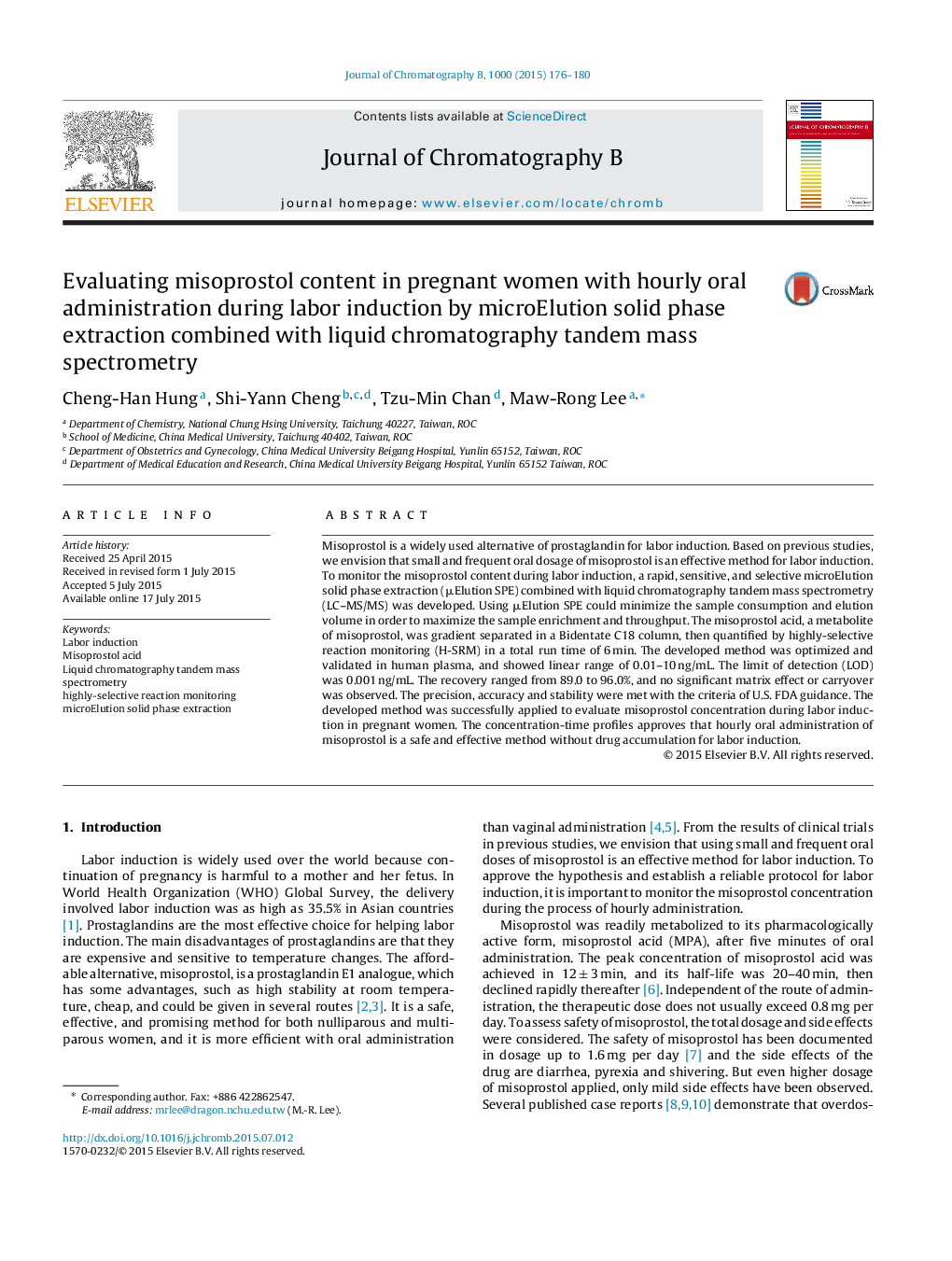| Article ID | Journal | Published Year | Pages | File Type |
|---|---|---|---|---|
| 7616950 | Journal of Chromatography B | 2015 | 5 Pages |
Abstract
Misoprostol is a widely used alternative of prostaglandin for labor induction. Based on previous studies, we envision that small and frequent oral dosage of misoprostol is an effective method for labor induction. To monitor the misoprostol content during labor induction, a rapid, sensitive, and selective microElution solid phase extraction (μElution SPE) combined with liquid chromatography tandem mass spectrometry (LC-MS/MS) was developed. Using μElution SPE could minimize the sample consumption and elution volume in order to maximize the sample enrichment and throughput. The misoprostol acid, a metabolite of misoprostol, was gradient separated in a Bidentate C18 column, then quantified by highly-selective reaction monitoring (H-SRM) in a total run time of 6 min. The developed method was optimized and validated in human plasma, and showed linear range of 0.01-10 ng/mL. The limit of detection (LOD) was 0.001 ng/mL. The recovery ranged from 89.0 to 96.0%, and no significant matrix effect or carryover was observed. The precision, accuracy and stability were met with the criteria of U.S. FDA guidance. The developed method was successfully applied to evaluate misoprostol concentration during labor induction in pregnant women. The concentration-time profiles approves that hourly oral administration of misoprostol is a safe and effective method without drug accumulation for labor induction.
Related Topics
Physical Sciences and Engineering
Chemistry
Analytical Chemistry
Authors
Cheng-Han Hung, Shi-Yann Cheng, Tzu-Min Chan, Maw-Rong Lee,
